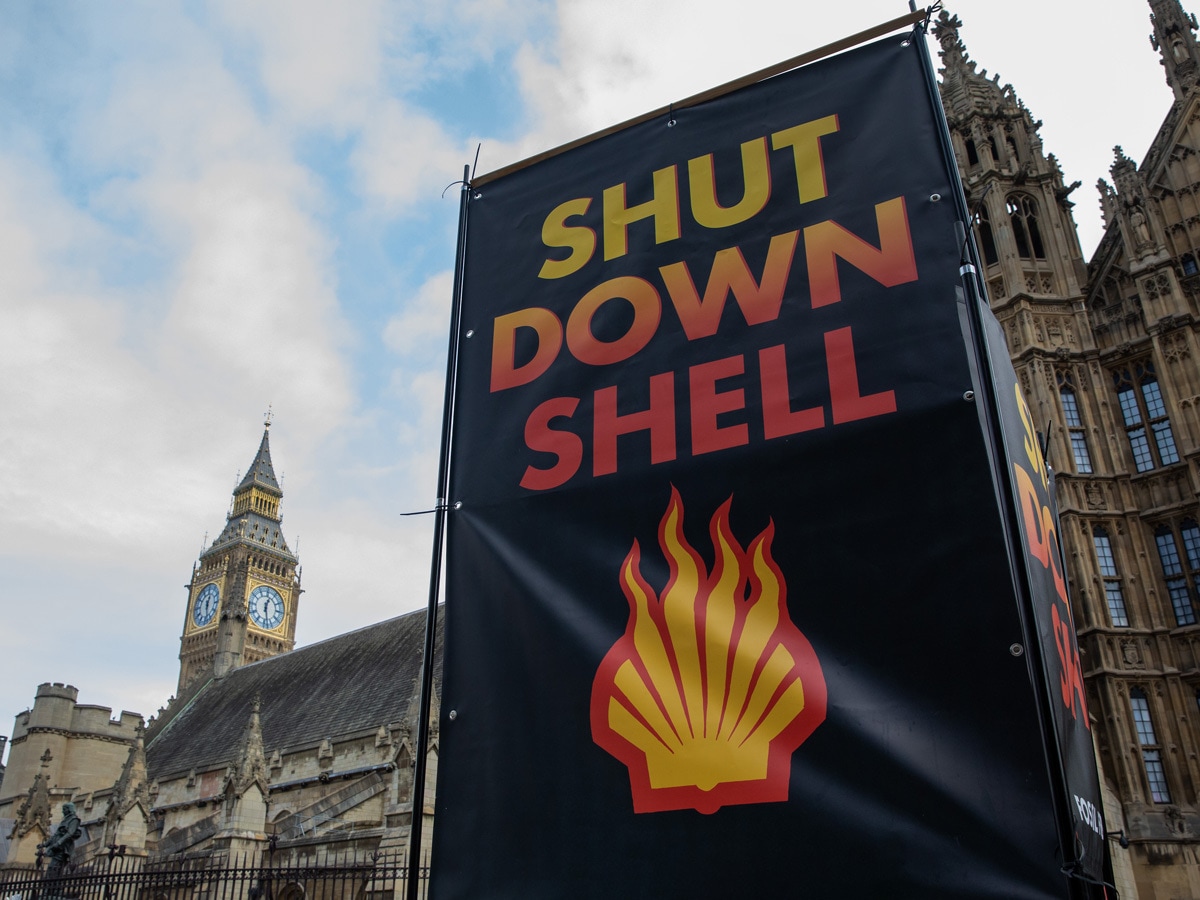Shell’s share price gains have slowed this year, in parallel with a cooling in oil prices. Still, profits are up, with the company delivering a record-breaking set of first-quarter earnings. But profiteering from fossil-fuels has attracted plenty of flak from both climate protesters and institutional investors. How much of a threat is this to the share price?
Year-to-date, Shell’s [SHEL.L] share price is up 1.14%, closing Friday, 26 May, at 2,352.5p. Over the two-year period, the stock is up over 74%, with a large chunk of those gains coinciding with Russia’s invasion of Ukraine and the subsequent hike in oil and gas prices.
This year there has been a change at the top of Shell, with Wael Sawan taking over as CEO in January. Since Sawan took the top job there have been signs that the company is prioritising short-term returns over green initiatives. This reflects a wider trend in the oil industry as it emerges from the pandemic when demand all but cratered. Rival BP [BP.L] said it would scale back its own climate goals after profits doubled to $28bn last year.
Unsurprisingly, some institutional investors and climate protesters are not happy about the pivot back towards fossil fuels. But will the protesters be able to influence the Shell share price?
Shell posts record Q1 profits
Shell delivered record first quarter (Q1) profits in early May, with profits of $9.6bn, topping analyst expectations of around $8bn. Fuelling the robust numbers were trading and LNG production, which helped to offset a softening in fossil fuel prices.
Shell also announced a $4bn share buyback, bringing expected shareholder distributions in the first half of the year to $12bn.
This is a good set of results for the new CEO, who has promised to close the valuation gap between Shell and US rivals.
“We do see a significant undervaluation in the Shell share, and we are working hard as a management team to be able to plug that gap,” said Sawan following the publication of the Q1 results.
Shell comes in for flak at AGM
Shell’s AGM on 23 May descended into farce as climate protesters delayed its start by over an hour. At the meeting, shareholders rejected new targets for carbon emissions that had been tabled by campaign group Follow This.
The resolution called for Shell to align its ESG goals with the Paris Agreement. Dutch pension managers MN and PGGM have both backed the resolution, which Shell criticised as being “unclear” and “generic”. Shell’s shareholders voted against the resolution by 79.8% to 20.2%.
Other voices demanding change include institutional investors the Church of England Pensions Board, the UK’s Local Authority Pension Fund Forum and its National Employment Savings Trust, and shareholder advisor PIRC, all of whom said they would vote against the reappointment of Shell chairman Andrew Mackenzie.
In Shell’s defence, the company invested $3.5bn in its renewables unit in 2022, but this is a fraction of its total capital spending of $25bn. Under previous boss Ben van Beurden, the company had promised to reduce oil production by 1% to 2% annually by 2030. But current CEO Wael Sawan told the Times in March that this target was under review.
Where next for Shell’s share price?
A focus on oil profits will help Shell’s bottom line, especially while energy prices remain heightened. Longer-term, the danger is that, without meaningful change, it and other oil companies will come to be seen as the new tobacco companies.
The events at Shell’s AGM, where a fifth of shareholders voted for the Follow This resolution, shows that environmental issues are no longer the preserve of protestors.
Whether this translates beyond negative headlines is unclear. In the short-term, at least, Shell’s share price is more likely to be influenced by what’s happening in the oil markets.
In the meantime, analysts see some upside in Shell’s share price. Jefferies analyst Giacomo Romeo has a ‘buy’ rating on the stock to go with his 3,000p price target. Among the rest of the analysts, Shell’s share price has a 2,933.3p target, suggesting a 24.7% upside.
Disclaimer Past performance is not a reliable indicator of future results.
CMC Markets is an execution-only service provider. The material (whether or not it states any opinions) is for general information purposes only, and does not take into account your personal circumstances or objectives. Nothing in this material is (or should be considered to be) financial, investment or other advice on which reliance should be placed. No opinion given in the material constitutes a recommendation by CMC Markets or the author that any particular investment, security, transaction or investment strategy is suitable for any specific person.
The material has not been prepared in accordance with legal requirements designed to promote the independence of investment research. Although we are not specifically prevented from dealing before providing this material, we do not seek to take advantage of the material prior to its dissemination.
CMC Markets does not endorse or offer opinion on the trading strategies used by the author. Their trading strategies do not guarantee any return and CMC Markets shall not be held responsible for any loss that you may incur, either directly or indirectly, arising from any investment based on any information contained herein.
*Tax treatment depends on individual circumstances and can change or may differ in a jurisdiction other than the UK.
Continue reading for FREE
- Includes free newsletter updates, unsubscribe anytime. Privacy policy





